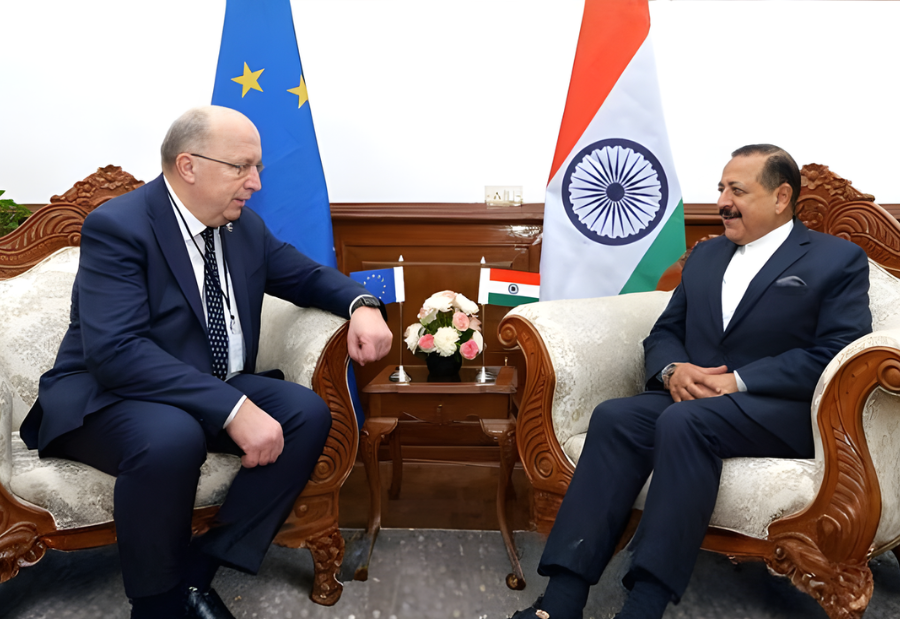Research activity around interstellar object 3I ATLAS has highlighted a quiet but significant space science competition between India and the European Union. Unlike the more visible focus of the United States and China, this competition is centered on scientific autonomy, data control, and shared progress rather than military interests.
India has adopted a low cost yet high efficiency approach. Organisations such as ISRO, the Indian Institute of Astrophysics and ARIES Observatory have been carrying out independent sky tracking efforts. Despite limited budgets compared to major space powers, Indian observatories have provided valuable optical and spectral measurements that support global modelling and trajectory predictions.
Meanwhile, the European Union has followed a coordinated research strategy. The European Space Agency has linked observatories such as La Silla, Paranal and Calar Alto into a collaborative network. Earlier missions including Gaia and Rosetta have also contributed to deeper insights on comet structures and interstellar motion.
Both India and the EU have placed strong emphasis on data independence. After a temporary halt in data availability during a government shutdown in the United States, both regions began strengthening their own systems to ensure uninterrupted access to observations of 3I ATLAS. This move was welcomed by researchers worldwide who rely on continuous sky monitoring.
There is also an emerging collaboration on artificial intelligence. Indian research centres such as IUCAA in Pune and European universities are developing AI tools that can reconstruct missing astronomical data and improve analysis accuracy for interstellar objects.
The relationship between India and the European Union is marked by openness and academic cooperation. Both regions support free access to research data, maintaining the belief that discoveries in deep space should not be restricted to a single nation.
Experts suggest that their shared focus is strategic rather than military. The growing ability of India and the EU to operate independently in space observation indicates a shift toward a civilian led scientific landscape.
With more interstellar bodies expected to be detected in the coming years, the model of distributed astronomy, where multiple nations contribute partial datasets, may become the global standard. For India and the EU, studying 3I ATLAS represents a clear statement of capability and confidence in shaping the future of space science.
Also read: Viksit Workforce for a Viksit Bharat
Do Follow: The Mainstream formerly known as CIO News LinkedIn Account | The Mainstream formerly known as CIO News Facebook | The Mainstream formerly known as CIO News Youtube | The Mainstream formerly known as CIO News Twitter
About us:
The Mainstream formerly known as CIO News is a premier platform dedicated to delivering latest news, updates, and insights from the tech industry. With its strong foundation of intellectual property and thought leadership, the platform is well-positioned to stay ahead of the curve and lead conversations about how technology shapes our world. From its early days as CIO News to its rebranding as The Mainstream on November 28, 2024, it has been expanding its global reach, targeting key markets in the Middle East & Africa, ASEAN, the USA, and the UK. The Mainstream is a vision to put technology at the center of every conversation, inspiring professionals and organizations to embrace the future of tech.




